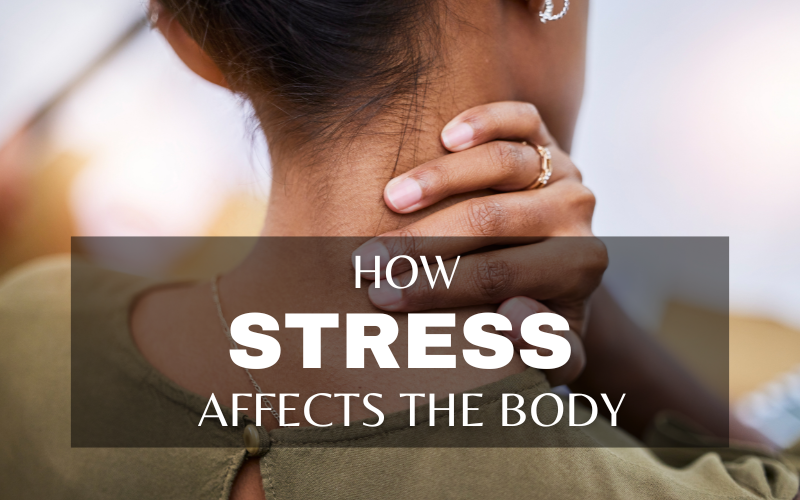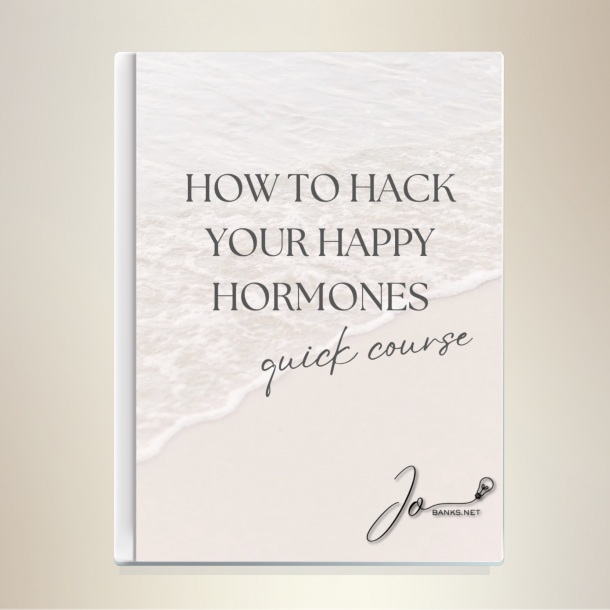Audio Version (06:59)
When we experience strong negative emotions such as stress, anxiety, and overwhelm, it is because our ‘fight, flight, freeze’ stress response has been activated in our nervous system.
Firmly rooted in our DNA, this reaction is an inbuilt safety mechanism that originates back to our ‘caveman’ days, explicitly designed to help us deal with physical threats appropriately.
The exact biochemical stress reaction that enabled our distant ancestors to escape danger, e.g. a sabre-toothed tiger attack, remains a constant human trait today.
No doubt you’ve experienced it yourself; for example, when you walk down a street on a dark night and hear footsteps approaching, it is reasonable for your nervous system to trigger the stress response to enable you to fight, run or freeze.
Biochemicals
When we trigger the stress response, our body floods with hormones such as cortisol (commonly referred to as the stress hormone) and adrenaline. These biochemicals provide us with a 15-minute short burst of strength and energy, allowing us to either stand and fight, run away, or freeze/hide until the threat passes.
However, the same biochemicals are released in reaction to physical danger and perceived threats. For example, the stress response could be triggered by:
- An email from someone you don’t like
- Worrying about the future, your kids, finances, your job, etc.
- Overthinking
- Overanalysing a situation hours, days, weeks or even months after it happened
- The thought of having to see someone you’ve previously had a conflict with, e.g. an ex-partner or boss
- Imagining problems where they don’t exist
- Consistent negative thought patterns
- Constantly expecting the worst
- Driving past somewhere where you had a previously bad experience
Your body reacts this way because your mind cannot tell the difference between real and imagined threats and reacts precisely the same way.
However, today, often, it isn’t appropriate to run away; fighting is socially unacceptable, and therefore, many of us either freeze or display fight and flight in very different ways (more on that in the next article).
It sounds like woo-woo nonsense, but as the well-known book title suggests, ‘The Body Keeps The Score’! To watch the video, click here.
Of course, I’m not a medical doctor; you should ALWAYS seek medical advice for any illness or ailment. However, if you have unexplained headaches, back pain, joint pain, hip pain, upset stomach, IBS, skin rashes, etc., with no apparent underlying cause, it could be stress-related.
How to Recognise an Activated Stress Response
Many people don’t even realise that they have triggered their stress response. That is especially the case for people who are living in survival mode. In other words, their autonomic nervous system is always on high alert. I have written about that previously (you can read the article here) and will do an upcoming video on it, too.
As I always say, knowledge is power. Tuning into what your body tells you is critical in combating stress and anxiety.
If you experience any of the following (this list is not exhaustive), you could be trigging your stress response:
- Tightness in the chest
- Butterflies
- Fluttering in the chest
- Light-headedness
- Feeling overwhelmed
- Erratic thinking patterns
- Trouble concentrating
- Short temper
- Anger
- Frustration
- Tears/crying for seemingly no reason
- Insomnia
- Lethargy
- Excessive procrastination
- Working too much/too little
- And a surprising one – people pleasing and inability to say no and set boundaries
- Aches and pains (as I mentioned above) that keep recurring with no underlying reason.
The Best Tool for Managing Stress
If you recognise any of the above symptoms, THE very best thing you can do immediately to reduce the stress effects is to EXERCISE.
If you think about it, it makes perfect sense. The stress response is designed to give us a spurt of energy, so it stands to reason that by doing something that raises your heart rate, you will burn off those potentially harmful chemicals, preventing a build-up.
Exercising also releases new biochemicals, including endorphins (the feel-good hormone) and dopamine (which helps you feel calm and aids sound sleep).
Many people baulk at the thought of having to exercise; however, it does not have to mean a six-mile hike, running a half-marathon or hitting the gym for two hours. Twenty minutes of walking (where you raise your heart rate but are still able to hold a conversation) a minimum of three times a week will make a significant difference to your health.
According to Mind (the mental health charity), one in four people will experience a mental health problem yearly in England. If you need support in managing your mental health, don’t hesitate to contact a friend, colleague, family member, coach, or healthcare professional.
What Next?
To watch the extended version of this article, head over to YouTube.
In the next article, I’ll explore the behaviours we often exhibit when stressed and why we find it difficult to think straight when in fight, flight freeze mode.
If you enjoyed this article (and haven’t done so already), please hit the subscribe button at the top of the page. If you head over to YouTube, please subscribe, hit the notification bell, and LIKE the videos you watch. It’s such a small thing to do, but it makes a massive difference.
Talking of the YouTube channel, I’ve been lining up some excellent inspirational guests to interview. So watch out for that coming in the very near future!
(If you know anyone you think would be interesting to interview for the channel, please DM or email me at info@jobanks.net.)
As always, thanks for your continued support.




